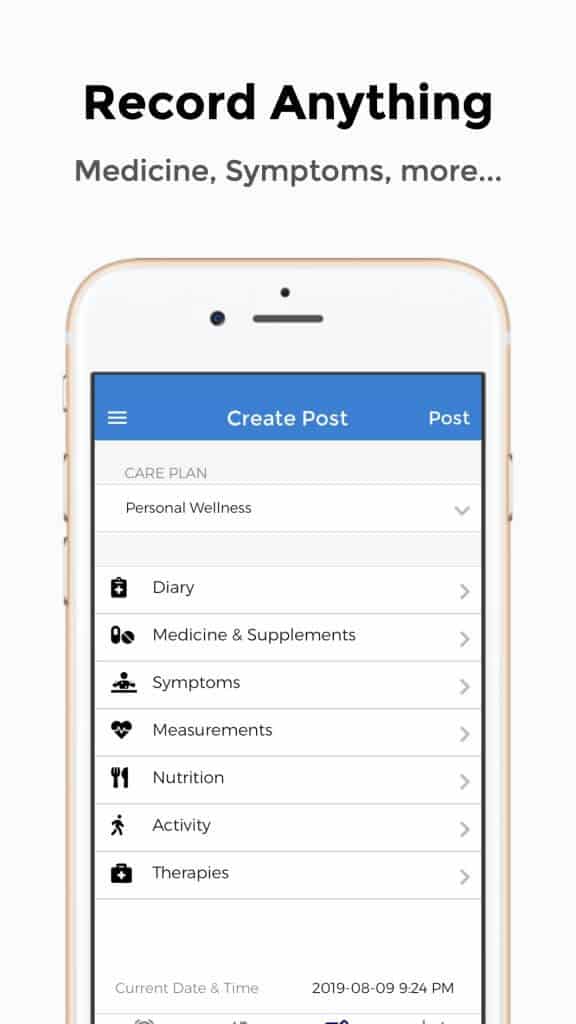
Hashimoto’s thyroiditis is an autoimmune condition, which is often present throughout the entire life. It is one of the most commonly diagnosed types of thyroid disease, and it requires adequate management (including the regular monitoring of hormone levels).
In the situation of those who suffer from this form of thyroiditis, the immune system functions abnormally – in consequence, it attacks the thyroid gland, leading to both inflammation and damage. In turn, this will affect the ability of the thyroid to produce adequate levels of hormones, leading to hypothyroidism or an underactive thyroid gland.
It is considered that Hashimoto’s thyroiditis is one of the most common causes of hypothyroidism. The symptoms will vary from one patient to the other, but anyone who receives this diagnosis should monitor the condition with strictness. If the condition is left untreated, severe complications can occur, including heart disease, infertility, and mental health disorders.
The condition is managed through hormone replacement therapy, which will lead to the disappearance of discomforting symptoms. However, medication adherence is essential in this case. CareClinic’s health app can ensure the necessary treatment adherence, offering medication reminders and valuable additional support.
Why CareClinic?
Just because you have been diagnosed with Hashimoto’s thyroiditis, this does not mean you cannot live an active and satisfying life. CareClinic can be used as a health diary, which can help you manage every aspect related to your condition so that you feel in control all the time.
For example, you can use the smartphone app to document your symptoms, such as the weight gain, fatigue, depression or menstrual issues. You can monitor these over a period of time and share the report delivered through the application with your doctor. In this way, you can get an overview of the disease and also see how you responded to various treatment solutions. Basically, the app allows you to document your health in general.
Integrated health journal for your benefit
 The application has an integrated health journal, in which you can document your symptoms and health measurements, such as your thyroid hormone levels, blood pressure, and weight. You can even record the results from various investigations and your emotional manifestations with regard to living with a chronic condition such as Hashimoto’s thyroiditis.
The application has an integrated health journal, in which you can document your symptoms and health measurements, such as your thyroid hormone levels, blood pressure, and weight. You can even record the results from various investigations and your emotional manifestations with regard to living with a chronic condition such as Hashimoto’s thyroiditis.
As previously mentioned, at the end of each month, you will be given a comprehensive report that can be printed and shared with the treating physician. The CareClinic app has been designed in such a manner that it will offer valuable information to your doctor and other healthcare professionals so that you benefit from the best possible treatment plan.
Medication reminders for adequate treatment adherence
The hormones replacement therapy can help you feel better but only if you follow the treatment to the letter. You can use the CareClinic health app to generate a reminder for each of your drugs, including the frequency and dosage. In this way, you will ensure the necessary treatment adherence and feel better in no time. The snooze feature will keep pestering you, until you confirm having taken the medication.
Of course, you can set up reminders for doctor appointments as well, making sure you get in touch with your physician on a regular basis. For your treatments, you can add the prescribed instructions to each reminder.
A Thyroid Tracker App To Use for Managing Hashimoto Thyroiditis
If you are still having doubts about using CareClinic’s health app to manage your condition, keep in mind that this app is simple to use. You can log in all of the relevant information, including your treatment plan. Once you will see everything logged into the application, you will feel more relaxed and in control.
The application is continuously developed by a team of experts, in accordance to the feedback you are providing. It has a user-friendly interface and it is tailored to the needs of someone living with Hashimoto’s thyroiditis. Thanks to its multitude of beneficial features, it will make your life easier. Moreover, you can trust it to manage your condition, adhering to the established medication regimen.
It is also useful to mention that the application is free and that there are no in-app purchases to worry about. All of the content within the application is backed by clinical studies, so there is no need to worry about information quality.
You can look at CareClinic’s health app as your number one tool for regaining a healthy hormonal balance. It will help you stick to your treatment plan, so that you can forget about the unpleasant symptoms you experienced and avoid serious complications. You may use CareClinic as a simple but effective symptom tracker app.
As you will see, Hashimoto’s thyroiditis is a condition that can be successfully managed with synthetic hormones (levothyroxine). Nevertheless, for the majority of us, medication adherence can be a genuine challenge, as there are so many things to handle as part of daily life.
Thyroid Stimulating Hormone Tracker (TSH Tracker)
Thanks to the medication reminders offered by the application, you can be sure that you will take your treatment on time and in the right dosage. You can track your symptoms and pay more attention to your overall health, reviewing the entries in your journal with regularity.
The fact that you can share all of the recorded information with your physician should be perceived as a big plus as well. All you have to do is print your health reports and take them with you on your next appointment. These represent a reliable source of information, especially with regard to the effects of the current treatment.
Overview of Hashimoto’s thyroiditis
The autoimmune condition is primarily characterized by the inflammation of the thyroid gland, as a result of the attacks coming from the immune system. The underactive thyroid gland will influence hormone levels, as well as the metabolism, heart rate, body temperature and even the muscle strength. This is a chronic condition, affecting general health.
As the thyroid gland is damaged by the immune system, it will become unable to produce adequate levels of hormones. The resulting hypothyroidism requires hormone replacement therapy for things to go back to normal. Otherwise, this will lead to severe complications, including hypercholesterolemia and birth defects.
A rare, potentially life-threatening complication of Hashimoto’s thyroiditis is the myxedema coma, which requires immediate intervention for obvious reasons (vital body functions slow down, up to the point of stopping). This form of thyroiditis is often encountered in women belonging to the 30 – 50 age category, and it approximately 5% of the general population.
How does this condition manifest?
As the thyroid functions at a reduced pace, one will begin to feel fatigued. Constipation, weight gain and hair thinning can also occur. People who suffer from Hashimoto’s thyroiditis have dry and pale skin, they battle depression and complain of increased sensitivity to cold.
Their voice might change, becoming hoarse. In women, the menstrual cycle can become irregular or the menstruation has a heavier flow. Fertility issues might be present as well. If the thyroid gland becomes excessively swollen, a goiter can appear visible in the front of the neck.
People might complain of a sensation of fullness in the area of the goiter. In rare cases, this can be painful. The goiter might disappear with the passing of time, as a result of the thyroid gland damage (the gland shrinks).
It is important to note that the condition does not appear all of a sudden. It progresses over time, at a slow rate, rarely causing noticeable symptoms in the beginning. If the doctor suspects that you are suffering from Hashimoto’s thyroiditis, he/she might perform a physical exam, as well as ask about your medical history and order lab tests. Blood tests are commonly made, in order to measure the levels of TSH (thyroid stimulating hormone) and potential antibodies.
Is this a common diagnosis?
The answer is yes. It is one of the most common forms of thyroiditis but, despite its frequency, the exact cause for which it occurs has yet to be identified (the same for any other autoimmune disease). The genetic predisposition might be one of the factors involved, as well as viral and bacterial infections, exposure to radiation or the excess iodine consumption.
It is known that the condition is more common in women than men. Women who have just given birth are more susceptible to developing this condition. One might have a dysfunctional thyroid gland, which will eventually develop into Hashimoto’s thyroiditis. Also, if you are already suffering from an autoimmune disease, such as lupus, rheumatoid arthritis or diabetes, you might have a higher risk of developing this condition as well.
Can Hashimoto’s be Treated?
 The condition cannot be treated but it can be kept under control with the help of hormone replacement therapy. The hormones are administered in the form of medication, improving the overall functioning of the thyroid gland. In prescribing this form of therapy, the physician will take into account the age and weight of the patient, as well as co-existing health issues and associated treatments.
The condition cannot be treated but it can be kept under control with the help of hormone replacement therapy. The hormones are administered in the form of medication, improving the overall functioning of the thyroid gland. In prescribing this form of therapy, the physician will take into account the age and weight of the patient, as well as co-existing health issues and associated treatments.
With mild forms of Hashimoto’s thyroiditis, no treatment might be prescribed. However, given the fact that this is a progressive condition, one will need for his/her hormone levels to be regularly monitored. In case of changes, treatment might be required to sustain the healthy functioning of the thyroid gland.
The standard treatment for this condition is levothyroxine, a synthetic hormone that does not cause any side-effects. The treatment has the main goal of replacing the missing levels of thyroid hormones. As the hormone replacement does its job, the symptoms will disappear and the overall health will improve. It is also recommended to avoid foods rich in iodine, as these might make the condition worse.
The medication is prescribed for life, with regular monitoring of one’s hormone levels. For the best results, it is taken in the morning, right before eating. The doctor will adjust the dose of the medication in accordance with the needs of the patient.
Severe forms of Hashimoto’s thyroiditis require permanent treatment, so as to prevent severe complications and organ damage. It is important to consider using a pill reminder app to manage your treatment optimally.
Facts on Hashimoto’s Thyroiditis
- The autoimmune condition is characterized by the destruction of the thyroid gland, cell by cell
- Antibodies form as a result of an abnormally-functioning immune system, attacking the thyroid tissue and leading to fibrosis
- The levels of thyroid hormones are down, while the ones of TSH go up (as compensation)
- Complications can occur from doses of synthetic hormones that are too high, including arrhythmia and osteoporosis
- Hormone toxicity can occur with a standard dose of levothyroxine in some people
- Other autoimmune conditions associated with Hashimoto’s thyroiditis include vitiligo, Sjögren’s syndrome, pernicious anemia, celiac disease, autoimmune hepatitis, Addison’s disease, etc.


